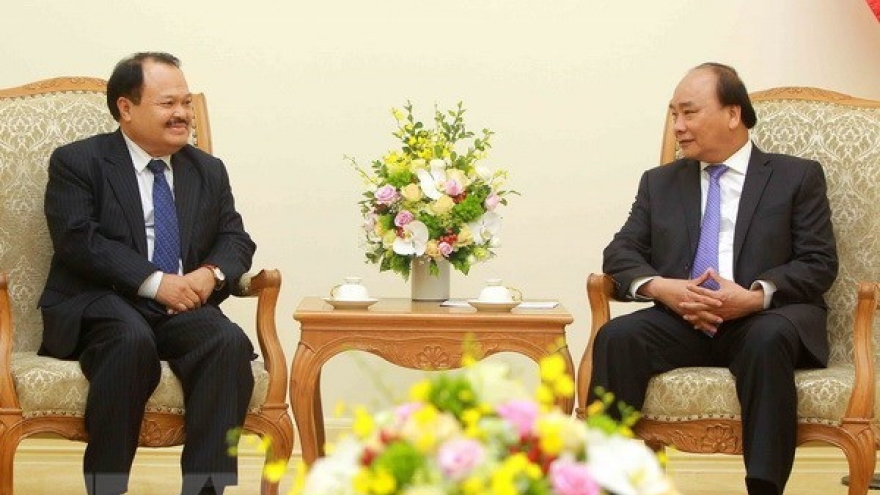Vietnam, Laos talk ways to enhance cooperation in energy, mining
Minister of Industry and Trade Tran Tuan Anh and Lao Minister of Energy and Mine Khammany Inthirath held talks in Hanoi on April 4 to discuss ways to boost bilateral cooperation in energy and mining, and remove barriers for mining and hydropower projects.
 |
The two ministers agreed that Vietnam and Laos must improve legal and institutional frameworks to further promote and strengthen partnership between the two ministries and governments.
Vietnam will need to import electricity, Minister Anh said, suggesting in a long run, Vietnam and Laos should take into account connecting their national power grids. Plus, electricity interconnection should be set up across ASEAN nations in the future, he added.
The two sides also agreed in principle the main contents of the amended agreement on energy and mining between the two countries which will replace that signed in 2006. It is expected to pave the way for a long-term partnership between the two nations in the fields.
The agreement includes a list of Lao power projects to supply electricity for Vietnam and a plan to transmit electricity from Laos to Vietnam as well as a mechanism for the two sides to negotiate electricity prices.
Besides, the two ministers consented to provide support to soon begin the construction of the My Ly – Nam Mo I hydropower project.
Laos holds enormous potential in the energy industry and expects to make it a spearhead sector to boost the local economy. The country targets an ambition of becoming the “Battery of Asia”.
To this end, Laos aims to produce 10,000 MW of electricity per year in various forms of hydro, wind, coal and solar power by 2020; 75% of which will be exported to Thailand, Vietnam, Singapore and Malaysia.
Meanwhile, Vietnam has turned itself from an energy exporter to an importer of energy. Energy imports are forecast to fulfil about 37.5% of the country’s demand by 2025 and 58.5% by 2035.
During the 40th meeting of the Vietnam-Laos Inter-Governmental Committee in Vientiane last February, six out of 12 agreements signed between the two countries were in the field of energy.

